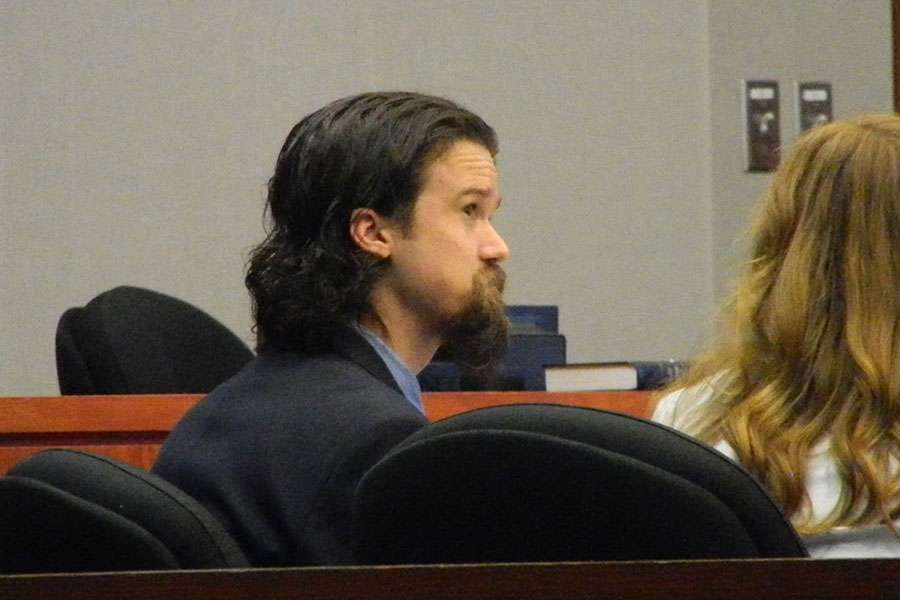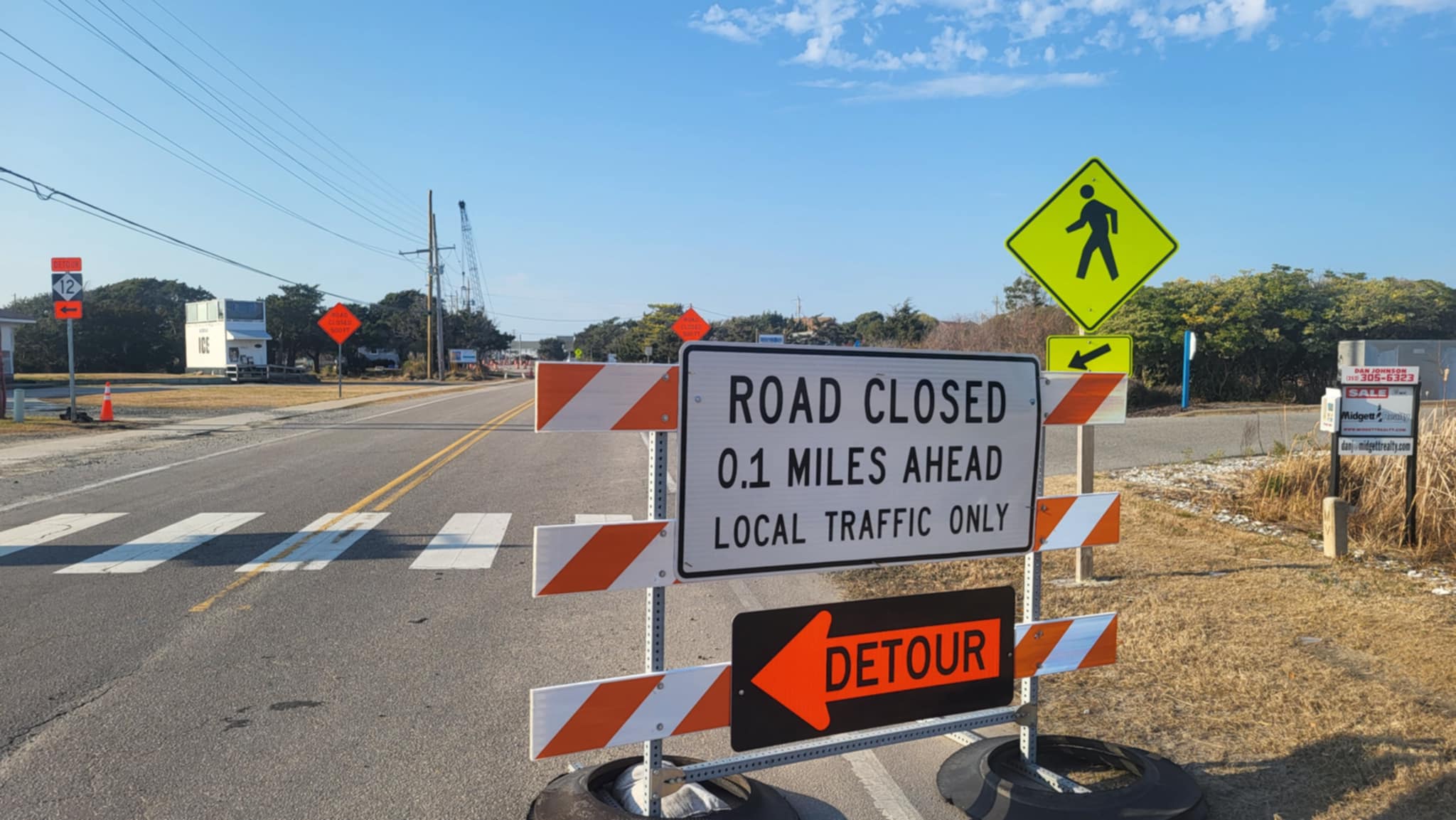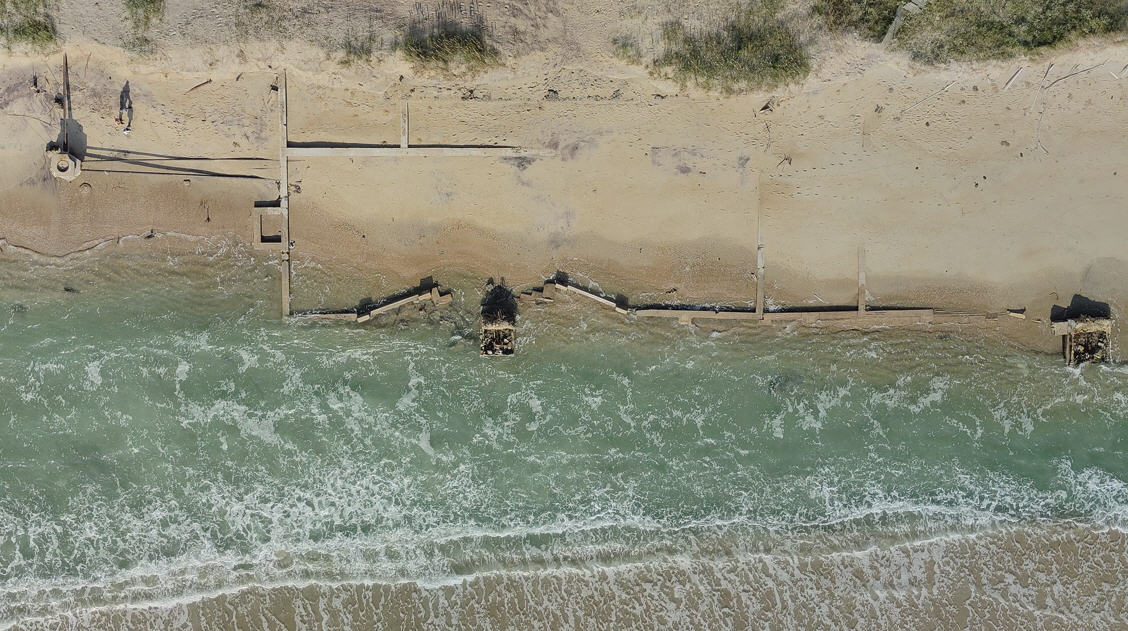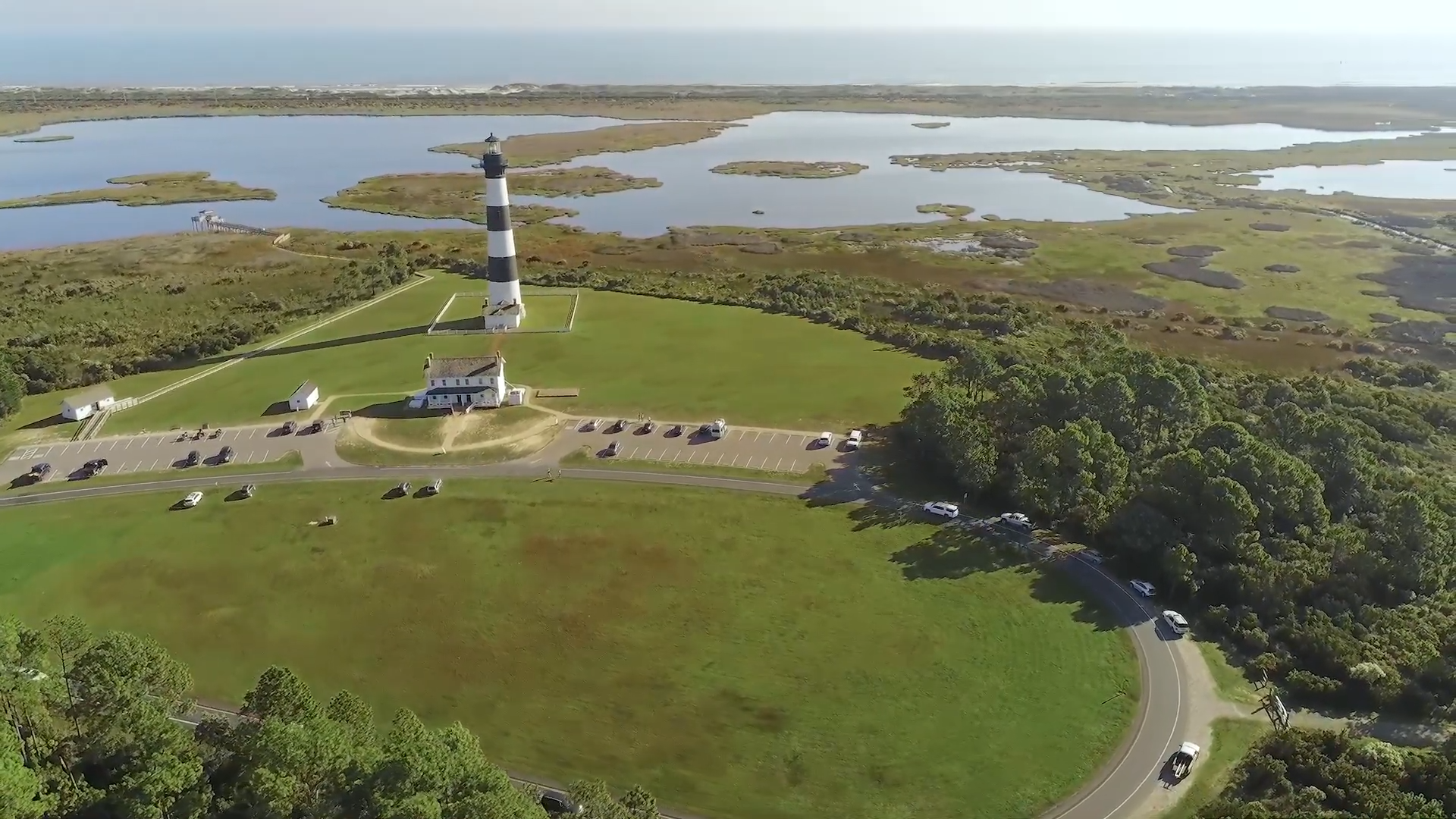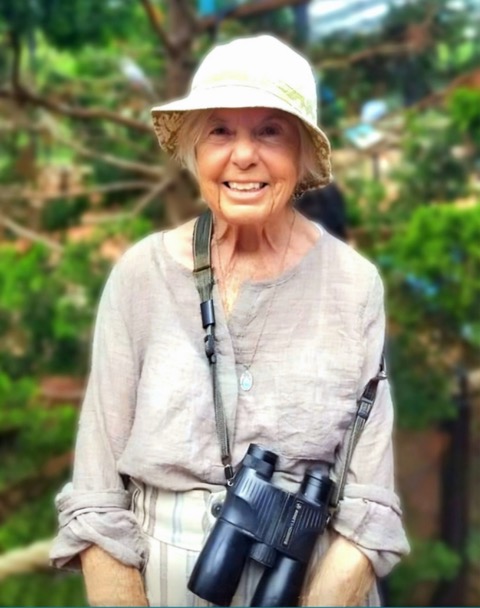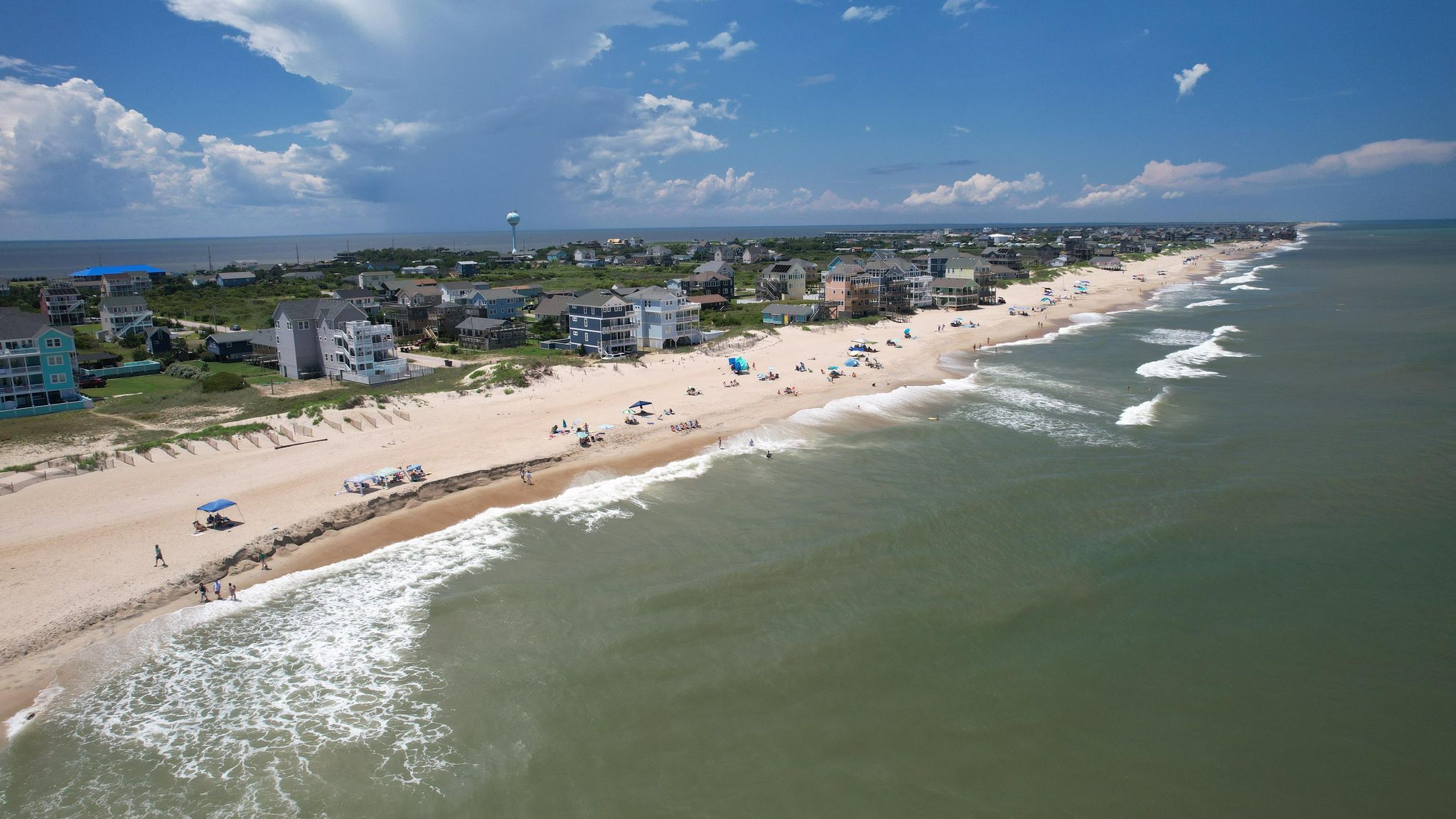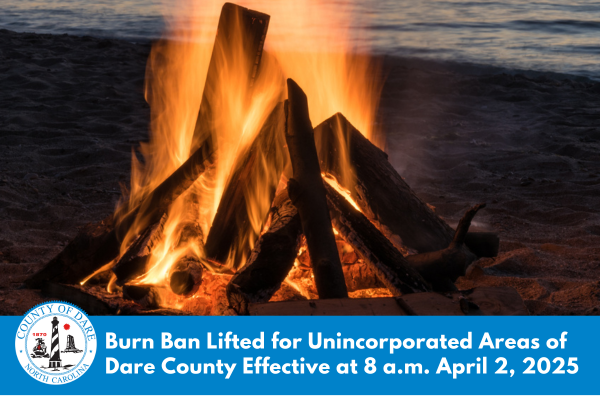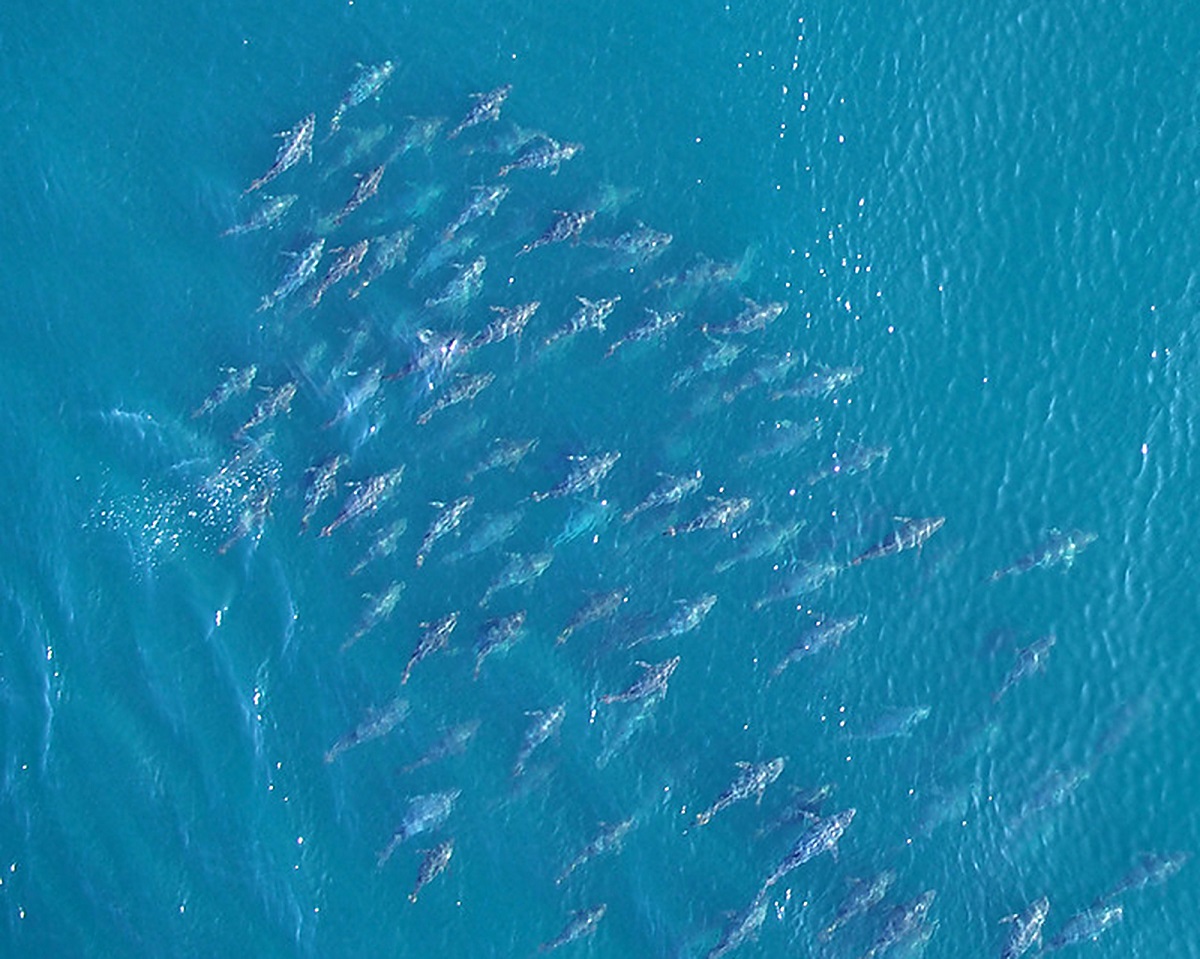Bald Eagle Released After a Brief Visit with Hatteras Island Wildlife Rehabilitation
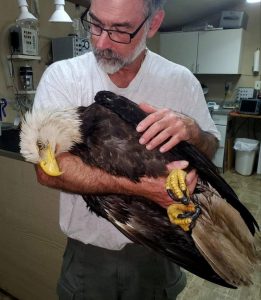
Lou Browning of Hatteras Island Wildlife Rehabilitation has roughly 16 years of experience providing emergency care and treatment for the wild animals who find themselves in trouble on the Outer Banks.
So when he received a late-night intake of a bald eagle that had suffered injuries in lower Currituck County, it wasn’t an entirely unusual event.
Browning estimates that he receives about 2-3 bald eagles every year, in varying conditions, and the next steps are as distinctive as the injuries themselves. “It all depends on their condition,” he says. “Their condition tells me what I need to do next.”
On this late-October occasion, a resident in Currituck County had seen the injured eagle fighting with another eagle in a territorial dispute. When the resident called Browning on the evening of October 24, he reported that the loser of the fight was laying on the ground, and wasn’t moving.
“It was too close to dark to get there in time [to retrieve the eagle], so I described how he could safely get a hold of it, and if the [eagle] made it through the night, I would come by first thing in the morning to pick it up,” says Browning.
But instead, concerned for the bird, the Currituck resident decided to carefully transport the 10-pound eagle to Browning that very night, driving all the way to Frisco with his girlfriend.
“He did really well in transporting the bird,” says Browning. “He wrapped it up in a sleeping blanket, which is a little scary in that you can overheat or potentially suffocate a bird, but it kept him from struggling and injuring himself…
“Many eagles are high strung, and are prone to injury in captivity,” he adds.
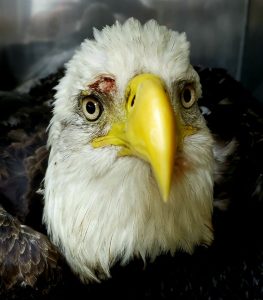
It was late at night when Browning received the injured eagle, and as he noted in an online update soon after the intake, “The next 24-48 hours tell the story.”
The eagle’s wings were beaten up, it was badly bruised, and there was some noticeable swelling in the outer wing area. On the plus side, the eagle tested very low for lead poisoning, which is a very common problem for eagles.
Once at the Hatteras Island Rehabilitation Center, Browning stabilized the bird, hydrated it, and gave the bird some pain medication to help it recover. The bird survived until the next day, and Browning optimistically began plans to transport the bird to one of his veterinarian colleagues, Dr. Joni Shimp of the Cape Fear Raptor Center, Inc. in Wilmington, N.C.
“Dr. Joni Shimp has more experience than anyone else in the state, if not the entire East Coast, when it comes to eagles,” says Browning. “I like to hand eagles off to her when I can, as there are things that can happen to them in captivity, like fungal infections which are very common… [Dr. Shimp] is good at surgery, observation, and good at noticing the subtle changes in eagles and other birds while they are in captivity.”
It was a waiting game to see if this recent feathered patient would be able to be transported, but by the second day, the eagle was stabilized enough to make the journey to Wilmington.
As it turned out, Educational Transporters affiliated with the Cape Fear Raptor Center happened to be in the Lake Drummond area just north of Elizabeth City, so Browning carefully transported the eagle in a safe commercial tote so that it could be treated by the team waiting in Wilmington.
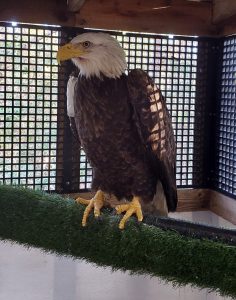
Browning kept tabs on the eagle’s progress, and as the days passed, the bird was recovering nicely. “When I spoke with Joni a week later, the bird was in good shape,” he says. “They had just flight-tested her – she was probably a female – and they found that she was almost ready to go.”
The eagle was released from the Cape Fear Raptor Center, Inc. seven days after being admitted, and Browning estimates that within a couple of days, the bird was likely back at its Currituck County home.
“This time of year, eagles are pairing up in mating behavior, as they’ll go to nest in January,” says Browning. “One question I have that will never be answered is: Was this a bird defending their territory against an [encroaching] bird? Or was this another bird trying to move into the territory? We will never know the answer.”
Regardless of lingering questions, the bald eagle’s journey from Currituck, to Hatteras Island, to Wilmington and back is one of many wild tales that Browning will cover in a year. Though he used to treat roughly 400 animals annually, since he narrowed his focus to raptors and reptiles, that number has decreased to roughly 60-70 animals every year.
Even so, November likely marks the beginning of a busy winter season, as the winter months are when the raptor intakes start to increase due to the cold temperatures. “It varies from year to year,” says Browning. “Right after the eagle, I got a Peregrine Falcon, which is typical for this time of year.”
“Raptors in general, and especially first-year or hatch-year birds, are out on their own, and not many make it through their first winter. 70 to 80 percent die due to making mistakes from not knowing how to survive yet, and also, they aren’t built up with a lot of muscle, and don’t have good fat storage. If the temperature goes down, they burn more calories, and subsequently, they do some stupid things as far as trying to catch animals that are too large or too dangerous – such as running into cars, or hunting around roads and getting hit.”
As one would expect, Browning’s ability to rehabilitate the injured animals that come his way is dependent on the extent of the injuries. However, the bald eagle’s story can certainly be labeled a success. “Every winter with raptors is fairly busy, simply because that is when they get into trouble,” he says. “But the eagle was likely back home after a one-week turnaround [at the Cape Fear Raptor Center], and that’s good news.”
About Hatteras Island Wildlife Rehabilitation
Hatteras Island Wildlife Rehabilitation, Inc. is a 501(c)3 all-volunteer organization dedicated to the treatment and care of the island’s ill and injured wildlife. Its goal is to restore animals to good health, then release them back into the wild. For more information on Hatteras Island Wildlife Rehabilitation and / or to injure about making a donation, visit their Facebook page at https://www.facebook.com/pg/Hatteras-Island-Wildlife-Rehabilitation-316636688958/



